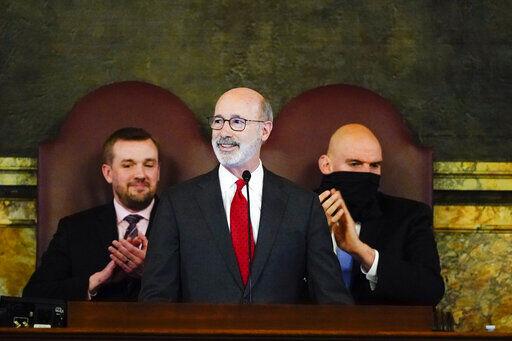By Anthony Hennen | The Center Square
(The Center Square) – A Senate Appropriations Committee hearing with the secretary of the budget and secretary of general services focused on making state government efficient – and accurately projecting the state budget’s cost to taxpayers, now and in the future.
The office of Democratic Gov. Tom Wolf is optimistic about the budget, but state Republicans suggest its predictions for the future are too rosy.
“Just yesterday, we received from the Independent Fiscal Office, possible projections of – if we pass the governor’s budget – we’d be $1 billion in the hole by 2023, and by 2026, 2027, looking at a $12 billion deficit,” said Sen. David Argall, R-Berks/Schuylkill. “Can you guarantee us that there won’t be a large tax increase if we agree to the governor’s new spending plan?”
“Absolutely,” Budget Secretary Gregory Thall said. “[The IFO is] looking at numbers where I don’t know where they are coming from.” Thall doubted IFO’s predictions that the sales tax would decline, saying he has never seen a sales tax decline year-over-year, even during the Great Recession.
“While I don’t have a crystal ball, I am confident that, as long as sales tax continues to grow and not contract, there won’t be a need for those types of tax increases,” Thall said.
Rep. Bob Mensch, R-Berks/Bucks/Montgomery, worried that the budget would prioritize short-term concerns over long-term needs.
“What we are going to be doing is rob Peter to pay Paul. In the governor’s exercise, we are going to fix everything, we are going to spend everything,” Mensch said. “But in three years and in five years, we have substantial deficits. And now, the same people that we benefited this year are going to be suffering immensely – much more – in three years or five years than they are today.”
“I don’t think that the budget reflects the appropriate or the proper expectations for our taxpayers,” Mensch said.
While budget discussions continue, state property sales were less controversial. “How does [the Department of General Services] evaluate bids for public properties?” asked Nikil Saval, D-Philadelphia.
“State statutes require that we sell surplus property to the highest bidder through a sealed bid,” DGS Secretary Curt Topper said.
However, Topper mentioned the possibility of using a best-value basis standard that would grant more flexibility to consider the “best reuse plan for the property.” That, he said, would mean the General Assembly would need to grant more authority to the department.
